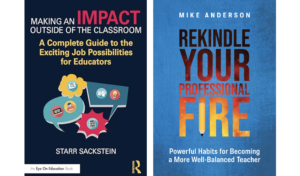Check in on Your Most Vulnerable Students
The first weeks of school are long past, and your class has likely settled into a rhythm. This is a great time of year to reflect on how things are going. Are routines running as smoothly as you’d like? Are students growing in independence as they navigate the day? Do you know all of your students well?
Now, consider your most vulnerable students—the ones who especially struggle to connect positively with peers. With many things running on autopilot and our minds busy with all we have to do, we may not notice students who might have developed disheartening strategies for surviving the day.
 Jeremy, who often doesn’t have anyone to eat with, spends lunchtime in the counselor’s office, preferring to talk with adults than to engage with other kids.
Jeremy, who often doesn’t have anyone to eat with, spends lunchtime in the counselor’s office, preferring to talk with adults than to engage with other kids.- Lisa avoids the bathroom closest to her classroom, fearing the teasing that often ensues when three cliquey girls are present.
- Markus delays getting work done in the morning so he can stay in for recess to escape the brutal “tag” game that springs up on the playground—a game where he ends up being “it” even when he doesn’t want to play.
While we, as teachers, tend to focus on building a positive community and helping kids get to know each other at the beginning of the year, it’s easy to forget that many students need extra help and support with social connections all year long. It’s also important to recognize that our most vulnerable children will especially struggle outside of the classroom, in common areas such as hallways, bathrooms, playgrounds, and school buses. That can make it hard for us to know when they’re struggling, so here are a few ideas for how we might keep our eyes out for them:
- Stand in your doorway and observe as students travel the halls. Who walks together and who often walks alone? Watch for subtle interactions as students pass each other. Is eye contact friendly? Are accidental bumps truly accidental?
- Eat lunch in the cafeteria. Join students for recess. Make sure all students have someone to eat with each day. Keep your eye out for students walking alone on the playground. Listen to how students interact with each other. If students are allowed to have electronic devices on during lunch and recess, check to make sure that any e-interactions are pro-social and kind.
- Create a simple survey for your students about safety at school. Ask them if there are “hot spots” where some kids get teased. Ask students to share, anonymously if they prefer, any information that you should know to make sure school is safe for all students.
- If you see any mean behavior, act. When kids see adults ignore mean behavior, they think we condone it. If you hear an insult, step in and say clearly and firmly, “We only use kind words in this school. Insults aren’t okay here.” Follow up if more intervention is needed.
- Help connect students. If you know a student is struggling to make friends, keep your eye out for a potential buddy. Maria and Destiny both enjoy playing games—you might partner them up for a math game and see how they get along. John and Leo each love fantasy and science fiction books. Put them in a reading group together to see if they hit it off.
These are just a few strategies. What other ideas do you have? How else do you help take care of students who are most vulnerable? Share your ideas in the comments so other teachers can learn from you!




